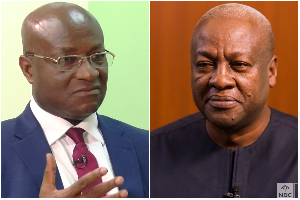An economist and professor of finance at the University of Ghana, Godfred Alufar Bokpin has clarified reports of him declaring Ghana a heavily Indebted Poor Country (HIPC).
Reports were rife Ghana had been listed by the World Bank in the Category of the Heavily Indebted Poor Countries on its website.
However, the development has been attributed to the decision of the Kufour administration to enrol Ghana under the HIPC program in 2001 which ensured debt forgiveness. An IMF report has also projected Ghana’s debt to GDP ratio which currently stands at 68.3% will hit 76.7% by the end of December 2020.
A development many analysts have described as worrying.
Speaking on the development on the Morning Starr with Francis Abban, Professor Bokpin warned if the government continues to borrow and spend at the current rate, the economy will feel the negative impact after the elections.
“Currently, Ghana is spending 46% of its tax revenue generated in servicing its debt and it’s one of the highest in Africa. We’ll see the real effects of this after the election.”
Professor Bokpin added “every cedi we generate, 46% goes to debt payment. The rest goes into paying wages and salaries.”
The former head of finance at the University of Ghana Business School tells Starr News his comments were premised on the ballooning debt levels and not a declaration of Ghana as HIPC as some have suggested.
Ghana’s public debt stock in June this year hit GH¢255,727.1 million (US$45,486.1 million), according to Finance Minister Ken Ofori-Atta during his 2020 mid-year budget review on Thursday, 23 July 2020.
“Mr Speaker, consistent with the front-loading of the government’s fiscal operations, the financing needs of the government were also front-loaded. As earlier stated, the COVID-19 pandemic has resulted in the tightening of global financial conditions. Fortunately, our US$3 billion International Capital Market financing was conducted in the first 2 months of the year. In addition, the IMF’s US$1 billion rapid credit facility was also executed in April 2020,” he reported to the house.
Business News of Tuesday, 24 November 2020
Source: starrfm.com.gh

















